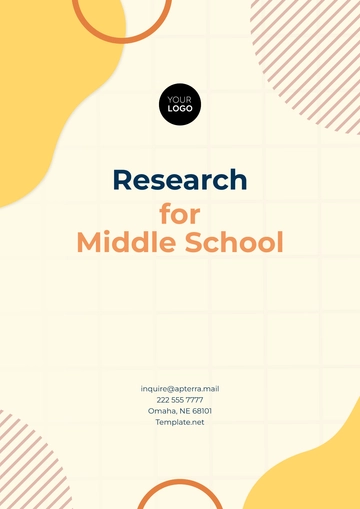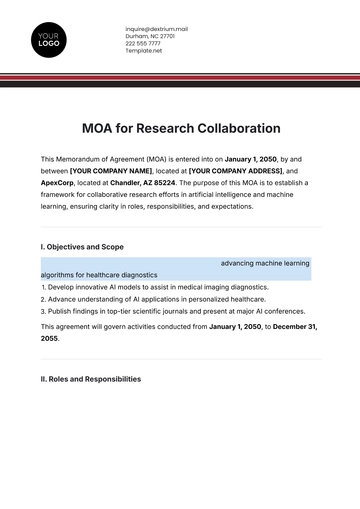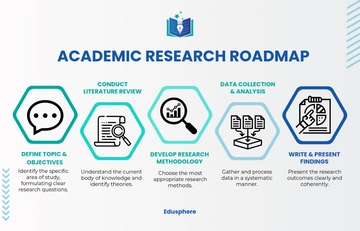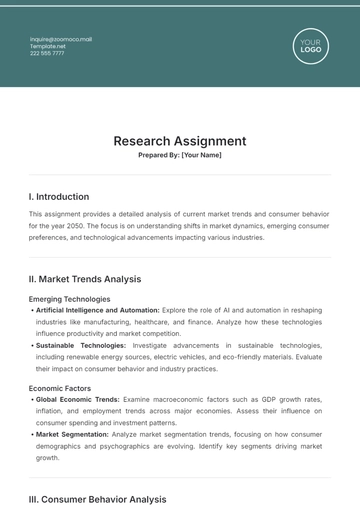Free Educational Research

I. Introduction
In an era marked by rapid technological advancements, the integration of digital tools into the educational landscape has reshaped the traditional classroom setting. This research, conducted by [YOUR NAME], explores the impact of digital learning platforms on student engagement and academic achievement in elementary schools. The purpose of this study is to provide [YOUR COMPANY NAME] with insights into the effectiveness of digital tools in elementary education.
As educational institutions increasingly adopt digital solutions, understanding their impact on young learners becomes crucial. This research aims to identify the core benefits and potential drawbacks of digital tools in fostering educational development among children aged 6 to 12.
II. Literature Review
The advent of digital education resources has sparked extensive debate among educators and researchers. Numerous studies suggest that digital tools not only facilitate a more interactive learning experience but also enhance students' motivation to learn. For instance, interactive applications and e-books have been shown to improve literacy skills among early learners by providing engaging, multimedia content.
Conversely, some scholars argue that excessive screen time may hinder cognitive development and social skills in younger students. This section examines existing research on both the positive and negative impacts of digital tools in elementary education.
III. Methodology
To assess the efficacy of digital learning tools, a mixed-methods approach was employed, combining quantitative surveys and qualitative interviews. Data was collected from five elementary schools that have integrated digital tools into their curriculums over the past three years.
Survey participants included 100 teachers and 300 students, randomly selected from the aforementioned schools. Additionally, in-depth interviews were conducted with school administrators to gain further insights into the strategic implementation of digital tools.
IV. Results
A. Survey Outcomes
The survey revealed that 80% of teachers observed an increase in student engagement when using digital tools in the classroom. Additionally, 70% of the students reported that learning with digital tools was more enjoyable than traditional methods.
B. Interview Insights
Administrators highlighted several key benefits of digital tools, including personalized learning paths and immediate feedback on student performance. However, they also stressed the importance of training teachers to effectively utilize these tools.
C. Data Summary
Parameter | Positive Impact (%) | Negative Impact (%) | No Impact (%) |
|---|---|---|---|
Engagement | 80 | 10 | 10 |
Enjoyment | 70 | 20 | 10 |
Academic Performance | 60 | 25 | 15 |
Teacher Satisfaction | 85 | 5 | 10 |
Administrative Feedback | 75 | 10 | 15 |
V. Discussion
The results indicate a predominantly positive reception of digital learning tools among both students and educators. Notably, the improvement in engagement and enjoyment suggests that these tools may offer more dynamic and adaptable learning experiences that appeal to contemporary learners.
Nevertheless, the concerns regarding excessive screen time and the need for adequate educator training must be addressed to optimize the benefits of digital tools in elementary education. Implementing structured screen time guidelines and ongoing professional development programs for teachers could mitigate these issues.
VI. Conclusion
This study underscores the potential of digital learning tools to enhance elementary education by making learning processes more engaging and adaptable. However, it also highlights the necessity for balanced implementation strategies that consider the developmental needs of young learners.
Future research should focus on longitudinal studies to better understand the long-term impacts of digital learning tools on children's educational trajectories.
VII. References
Smith, J. (2050). The Digital Classroom: Enhancing Learning Experiences. EduTech Journal.
Jones, A. (2050). Screen Time and Development: An Analysis of Cognitive Impacts in Children. Child Development Quarterly.
Brown, K. (2050). Technology in Education: A Comprehensive Overview. Academic Press.
Wilson, L. (2050). Personalized Learning Paths: The Future of Education. Innovative Learning Solutions.
Taylor, M. (2050). Teacher Training in the Digital Age: Preparing Educators for Tomorrow. Journal of Educational Development.
Research Conducted by: [YOUR NAME]
Company: [YOUR COMPANY NAME]
Email: [YOUR EMAIL]
- 100% Customizable, free editor
- Access 1 Million+ Templates, photo’s & graphics
- Download or share as a template
- Click and replace photos, graphics, text, backgrounds
- Resize, crop, AI write & more
- Access advanced editor
Unlock the power of data with Template.net's Educational Research Template. Crafted for academics and researchers, this editable and customizable tool streamlines your analysis process. Seamlessly integrate findings with our AI Editable Tool, empowering you to create insightful reports effortlessly. Elevate your research game today with this dynamic template, your key to scholarly success.





























